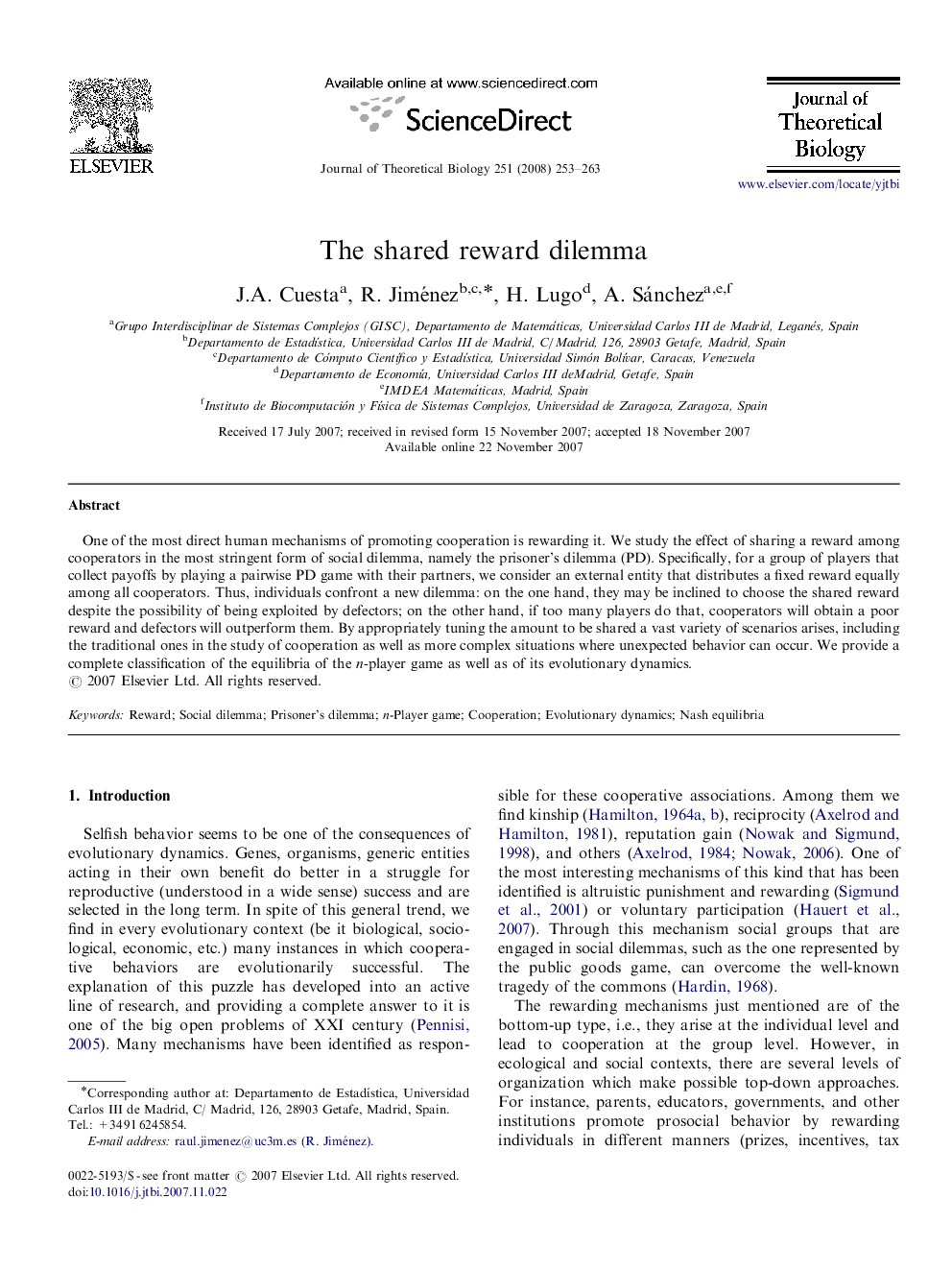| Article ID | Journal | Published Year | Pages | File Type |
|---|---|---|---|---|
| 4498654 | Journal of Theoretical Biology | 2008 | 11 Pages |
Abstract
One of the most direct human mechanisms of promoting cooperation is rewarding it. We study the effect of sharing a reward among cooperators in the most stringent form of social dilemma, namely the prisoner's dilemma (PD). Specifically, for a group of players that collect payoffs by playing a pairwise PD game with their partners, we consider an external entity that distributes a fixed reward equally among all cooperators. Thus, individuals confront a new dilemma: on the one hand, they may be inclined to choose the shared reward despite the possibility of being exploited by defectors; on the other hand, if too many players do that, cooperators will obtain a poor reward and defectors will outperform them. By appropriately tuning the amount to be shared a vast variety of scenarios arises, including the traditional ones in the study of cooperation as well as more complex situations where unexpected behavior can occur. We provide a complete classification of the equilibria of the n-player game as well as of its evolutionary dynamics.
Related Topics
Life Sciences
Agricultural and Biological Sciences
Agricultural and Biological Sciences (General)
Authors
J.A. Cuesta, R. Jiménez, H. Lugo, A. Sánchez,
